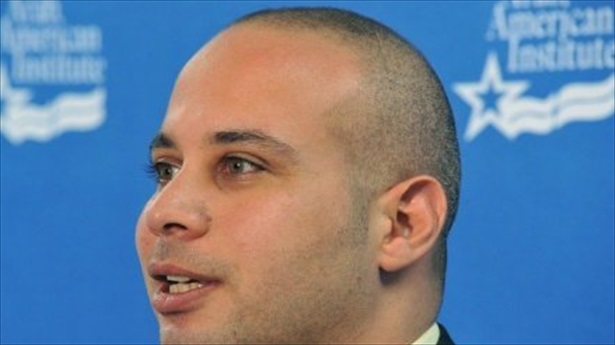NEW YORK: What purpose is Switzerland serving by jailing the renowned Franco-Polish film director Roman Polanski on a 30-year-old warrant? Arrested in 1977 for allegedly raping a 13-year-old girl in Los Angeles, Polanski pleaded guilty to the lesser offense of having unlawful sex with a minor. In the belief that his judge, the late Laurence J. Rittenband, would renege on his promise to let Polanski go free after serving 42 days in a California prison, the director fled the United States in 1978 before his final sentence was announced.
Since then, the victim of Polanski’s sex crime, Samantha Geimer, publicly forgave him, and expressed her wish for the charges to be withdrawn. So the reason to pursue the case now can have nothing to do with the rights or feelings of the victim. Nor is Polanski, a married father of two children with no other criminal record, likely to repeat his offenses.
So the good of society is not served by forcing him to return to LA for a trial. Common sense would seem to leave no other conclusion than that his arrest – in a country that is obliged by treaty to extradite fugitives from US justice – serves no purpose at all.
Yet the reactions to his sad plight, especially in France, have been oddly shrill. The French foreign minister, Bernard Kouchner, called Polanski’s arrest “sinister. Fréderic Mitterand, the culture minister, spoke of “a scary America that has just shown its face. The former culture minister, Jack Lang, said the “American system of justice had run amok. He added that it was like “an infernal machine that advances “blindly.
Infernal or not, one might argue that justice is supposed to be blind, in the sense that no one – not even the greatest filmmaker – is above the law or entitled to escape from it. Yet that is precisely what many people, including his colleagues in the film world – for example, Pedro Almodovar, Wim Wenders, and Ettore Scola – are claiming. They believe that it is “inadmissible for an artist of Polanski’s stature to be arrested for what he did.
Polanski is a French citizen, and France is probably more indulgent towards its great artists than is the US. In 1943, after a life of petty crime, the writer Jean Genet faced another prison sentence for theft, when Jean Cocteau declared that Genet was a literary genius. A French court, afraid of being too hard on a master of letters, reduced his sentence.
Allowing recognized artists to get away with behavior that would not be tolerated in lesser men is a tribute France pays to superior talent. (Think of Oscar Wilde, who, like Polanski, found refuge in Paris.)
Perhaps this shows that France is more civilized than the US. The Americans, and to an extent the British, sometimes pay a different kind of tribute to famous artists. If they are caught misbehaving, they are often treated with particular harshness by courts and the popular media alike. This is a form of populism: it shows that even the most famous people are no better than us – and it sells newspapers (or, nowadays, generates Web traffic).
A particularly nasty example was the case of “Fatty Arbuckle, a great comedy actor in Hollywood’s silent-movie era. When a girl claimed to have been raped at one of his parties in 1921, and then died a few days later, Arbuckle was pilloried in the press, and sentenced for rape and murder twice. It was not established until his third trial that he was innocent. The girl was a known blackmailer, and she died of causes that had nothing to do with her sex life. But Arbuckle’s career was ruined, the victim of an ambitious prosecutor and a popular press that made money out of scandals.
Polanski was not innocent, but he, too, may have fallen victim to the same combination of a judge’s desire to bring down a famous man and a sensation-starved media. Perhaps the US is not as civilized as France, but it is more democratic. And, while equal treatment under the law obviously is one of democracy’s more commendable features, the zeal of elected officials and mass media that pander to popular opinion in their treatment of talented artists is the ugly face of democracy.
The great French observer of American democracy, Alexis de Tocqueville, saw this face of American democracy in the 1830s, noting that “Americans are so enamored of equality that they would rather be equal in slavery than unequal in freedom. The price for American-style democracy, he wrote, was artistic mediocrity and public conformity.
This, too, was an exaggeration, but Tocqueville had a point. If too much deference to great artists is the mark of a society that has never quite escaped from its aristocratic roots, too little regard for them is a sign of narrow philistinism.
So what should Polanski do? In an ideal world, he would agree to return to Los Angeles, face his judges, and hope that his case will be dismissed. This is not an unlikely outcome. Americans can be generous. And he would then be free to go wherever he likes in the remaining years of his life.
Alas, the world is not ideal, and Polanski might find the risk of incarceration in a US prison too high. If he decides to resist being tried in a court of law, like any other offender, this would be understandable. Whether it is admirable is another question.
Ian Buruma is the author of Murder in Amsterdam: The Death of Theo van Gogh and the Limits of Tolerance. He is a professor of democracy, human rights and journalism at Bard College. His latest book is the novel The China Lover. This commentary is published by Daily News Egypt in collaboration with Project Syndicate, (www.project-syndicate.org).

